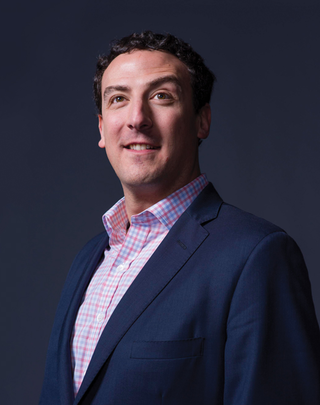Vision Quest
Isaac Lidsky discusses blindness and disability
By Jennifer Bleyer published May 2, 2017 - last reviewed on May 2, 2017
Isaac Lidsky has lived many lives, with one constant overshadowing it all. As a child actor, he starred on the early '90s TV show Saved by the Bell: The New Class. He graduated from Harvard at 19, went on to Harvard Law School, and clerked for Supreme Court Justices Sandra Day O'Connor and Ruth Bader Ginsberg. He's now a father of four, including triplets, and the founder and CEO of a successful construction company. He's done it all while losing his sight. Lidsky is, most recently, the author of Eyes Wide Open: Overcoming Obstacles and Recognizing Opportunities in a World That Can't See Clearly.
What has blindness taught you about perception?

I have a degenerative retinal disease called retinitis pigmentosa that affects the photoreceptor cells of the retina. I was diagnosed when I was 13, and since my mid-20s, I've been blind as the proverbial bat.
Going blind gave me a peek behind the curtain at the brain's wizardry—and it showed me how the mind works. I literally saw how the massive predictive machine that is the visual cortex makes guesses about what's out there. Objects would seem to appear and disappear. There were very bizarre visual effects, and for me it shattered the illusion of sight. Then I said, "Wait a minute, what are the other things in my life that I'm perceiving as some external objective truth, that I'm really making up in my own mind?"
When first diagnosed, I was absolutely terrified. I didn't think that blindness was going to ruin my life—I knew it. My eye-opening realization—pardon the pun—was that my fear was a fiction. I realized I could make another choice.
The insights that I've gained from my blindness really aren't about disability. They're about the awesome power we all have, in every moment, to choose who we want to be and how we want to live our lives. Once you understand that, it's liberating, and it makes you accountable. We all face challenging circumstances that are beyond our control. What we make of those circumstances is completely our creation. We are all empowered to decide what reality we want to live.
Science is remarkable, and I am convinced that in the next 5 to 10 years, I will have a substantial amount of my sight restored. It's certainly exciting—I want to see my kids' faces very badly. But I'm totally happy and overwhelmed with gratitude for the life I live now, and I learned to live this way by going blind.
